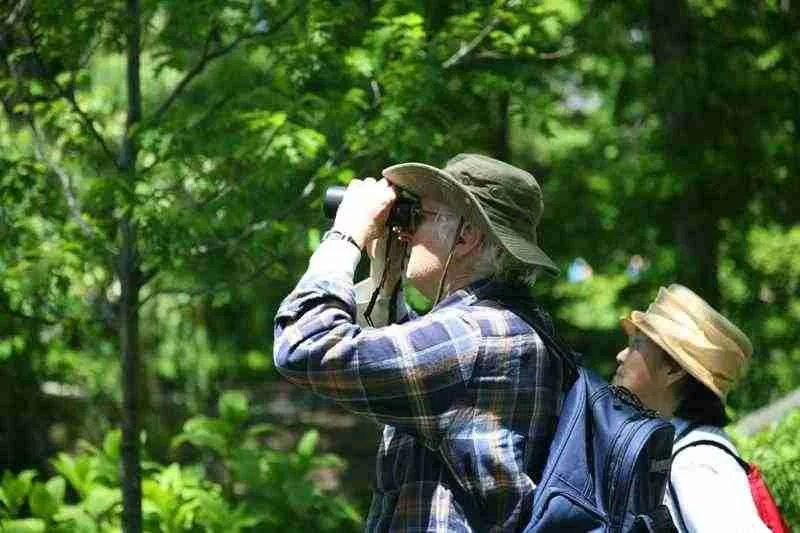Discover expert tips for finding the best campsite for bird watching in woodlands. Learn how location, season, and gear can enhance your birding adventure.

- 1-understanding-the-habitat---woodlands-and-bird-diversity
- 2-location-matters---proximity-to-watering-sites-and-edges
- 3-time-of-year---seasonal-bird-migration-patterns
- 4-amenities-and-comfort---balance-wildness-and-accessibility
- 5-expert-tip---early-morning-or-twilight-advantage
- 6-real-camper-experience---how-one-family-spotted-the-pileated-woodpecker
- 7-making-the-most-of-it---gear-preparation-and-ethics
1. Understanding the Habitat – Woodlands and Bird Diversity
Woodlands are among the richest environments for bird watching in North America, offering a wide variety of species, from melodious warblers to shy owls. But not all woodland campsites offer the same opportunities. The best campsite for bird watching often lies in mixed-forest regions where deciduous and evergreen trees coexist, supporting different ecological niches.
Dense canopy cover, variation in undergrowth, and nearby natural clearings all contribute to bird diversity. When seeking a campsite, it’s essential to consider how the layout of the woodland will affect your visibility and accessibility to birds.
2. Location Matters – Proximity to Watering Sites and Edges
Birds gravitate toward water sources — streams, creeks, and natural ponds are hotbeds of avian activity. A campsite situated within walking distance of such a water feature increases your chances of encountering various bird species throughout the day.
Equally valuable are “edge habitats” — the transitional zones between woods and meadows. These areas are incredibly productive bird-watching zones because they host both woodland and open-area species. To find these prime spots, consult local topographic maps or online birding forums, or visit Pine Cliff Resort where local expertise and guided recommendations can point you in the right direction.
3. Time of Year – Seasonal Bird Migration Patterns
One of the most overlooked birding tips is timing. During spring and fall, migratory birds travel along major flyways, many of which intersect with large woodland areas across the U.S. Setting up camp during these peak seasons can lead to once-in-a-lifetime sightings of rare warblers, tanagers, and raptors.
For example, the Appalachian woodlands during May transform into a warbler haven, while woodlands in the Pacific Northwest host unique western species in the fall. Planning your trip based on migration patterns will exponentially increase your success rate.
4. Amenities and Comfort – Balance Wildness and Accessibility
While the idea of roughing it deep in the forest might appeal to some, accessibility and amenities should never be sacrificed completely — especially for families or newer bird watchers. The best campsite for bird watching in woodlands combines quiet natural surroundings with minimal yet practical amenities: fire pits, compost toilets, flat ground for pitching tents, and ideally, minimal artificial light pollution.
Places like Pine Cliff Resort strike this balance perfectly — close to prime birding locations yet comfortable enough for longer stays. This balance is vital, particularly when you're waiting patiently for elusive species or hoping to spot owls at dusk.
5. Expert Tip – Early Morning or Twilight Advantage
Birds are most active at dawn and dusk, which makes campsite positioning absolutely critical. East-facing campsites give you a better view of early sunlight filtering through the woods — a prime window for bird calls, feeding, and movement.
Veteran bird watchers often set alarms an hour before sunrise, brew a quick coffee, and head out with binoculars ready. Staying close to trails or perches birds frequently visit can give you more sightings without the need to hike long distances in low light.
6. Real Camper Experience – How One Family Spotted the Pileated Woodpecker
Last summer, a family from Colorado shared their experience at a woodland campsite near the Ozarks. Armed with basic gear and a checklist, their 8-year-old daughter managed to spot a rare pileated woodpecker pecking at a decaying pine log just a few feet from their site. What made it possible? Their location — quiet, slightly elevated, and within walking distance of a creek and fallen trees.
Such moments aren’t uncommon when the right site meets preparation. Their story reflects a broader truth: the best bird sightings happen when you're both intentional and still enough to let nature come to you.
7. Making the Most of It – Gear, Preparation, and Ethics
Great birding isn’t just about where you camp — it's also about how you prepare. Bring lightweight binoculars, a birding guide specific to the region, a notebook, and even a small field recorder if you’re interested in calls. Keep a respectful distance from nests and avoid using artificial bird calls, which can disturb natural behavior.
Remember, the goal is to observe without interfering. Many seasoned birders follow the “leave no trace” principle religiously. If you're unsure what gear or guides are best for your trip, consider checking options from Pine Cliff Resort, where birding kits and location-specific recommendations are available.
Black Bear Campground
Hamilton, MT 59840, USA
Visit Location PageStraight Lake State Park Campground
1235 270th Ave, Luck, WI 54853, USA
Visit Location Page